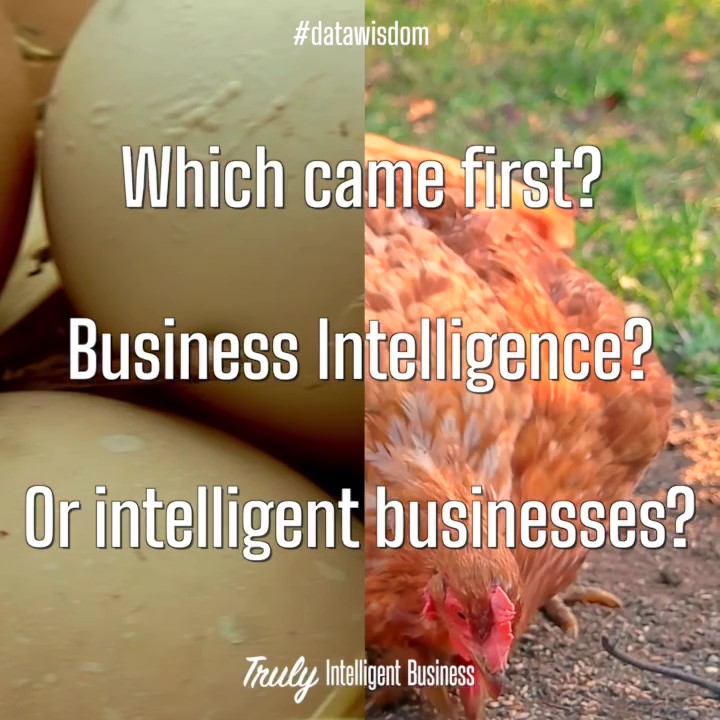Which Came First? Business Intelligence? Or Intelligent Businesses?
Businesses have been around for a long time.
Japanese construction firm Kongō Gumi was founded in 578 AD and operated for over 1400 years until it was absorbed as a subsidiary in 2006. For a millennium, it was undoubtedly an intelligent business.
And it’s not the only one.
Today, 970+ companies are, either whole or in part, over 300 years old.
Modern business intelligence technology didn’t appear until the late ’50s when IBM invented the hard disk, and computer scientist Hans Peter Luhn recognised the potential of BI.
It took 30+ years for analysis technology to become practical enough for business use.
Clearly, intelligent businesses existed long before the advent of modern business intelligence.
But what was it about those businesses that made them intelligent?
If the only BI technology available to them was paper and ink – how did they survive?
And why do so many businesses fail with BI when current technology is so advanced?
The answers lie behind the fact that business intelligence isn’t defined by technology.
It’s defined by the way a business works.
For your business to extract real value from BI technology, it must truly understand the processes by which it will achieve its goals.
Only then can you know what information will help your processes reach their goals and, therefore, what your business needs its BI technology to deliver.
Putting BI technology before strategic planning and business analysis is a common mistake.
It’s like handing a rifle to a primitive spear hunter.
Before the rifle can be valuable to the hunter, he must first see that he’d save time if he didn’t need to stalk his prey. He could hunt much larger and more dangerous animals if he didn’t need to get so close.
If he fails to consider alternative processes for achieving greater goals, he’ll continue stalking the same small prey. He’d throw the rifle at it and conclude it’s a poor weapon – before reverting to his spear.
In BI terms, it’s like someone saying:
“Heck, these advanced tools aren’t as good as the trusty old spreadsheets I’m used to. I’m going back to what I know, thank you very much.”
BI tools can make a real difference to a business’s success, but they often don’t get the chance because they aren’t combined with analysis that reveals why and how they should be used.
Therefore, the key to achieving true business intelligence is to make BI a part of your business strategy, not an IT strategy.
Intelligence is not found through sophisticated tools but by understanding your objectives and how to achieve them.
So, put your BI technology to one side and ensure that the people in your business understand their goals and processes before selecting BI tools to help do their job.
Strive to be an intelligent business first, instead of a business with BI technology.
Because the two things are most certainly not the same.
For more insights like this, check out our LinkedIn page and follow us!





0 Comments